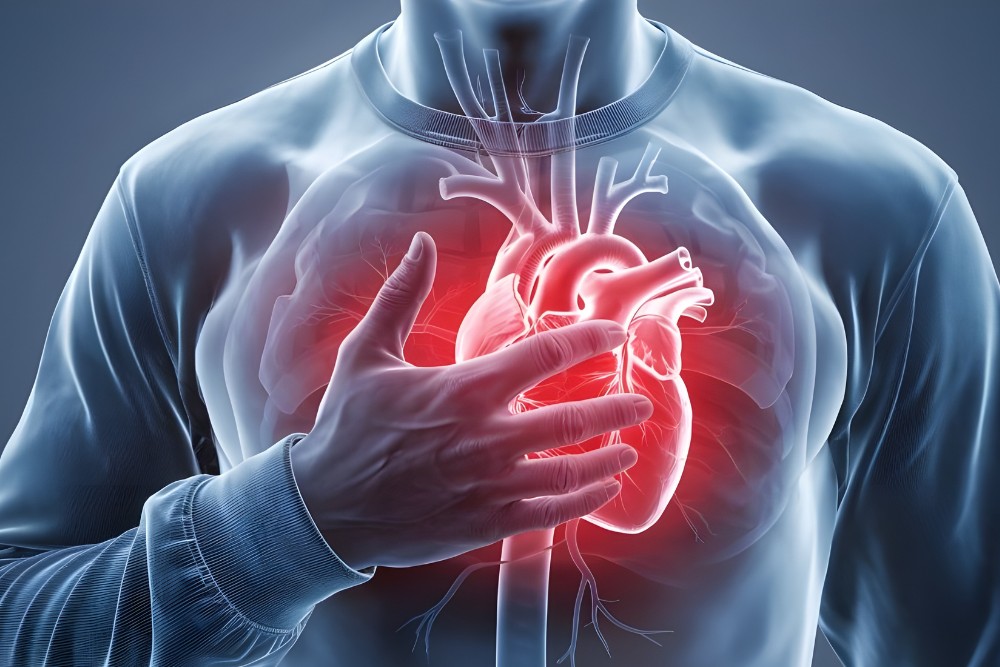How Genetics Influence Sudden Cardiac Death

Sudden cardiac death (SCD) is a tragic and often unexpected event that can strike without warning, even in people who appear healthy. While lifestyle factors and underlying heart conditions play significant roles in heart health, genetics can also be a major contributor to sudden cardiac death.
Hereditary conditions are increasingly recognized as key factors in both diagnosing and preventing these events, particularly in young individuals or those with no prior cardiac history.
Understanding how genetics influences sudden cardiac death is essential for early identification, risk management, and family screening. Let’s explore how hereditary factors contribute to this life-threatening condition and what you can do to reduce your risk.
Can Sudden Death Be Genetic?
Yes, sudden cardiac death can absolutely be genetic. In many cases, especially among young, athletic individuals or those with no obvious heart disease, genetic conditions are the only identifiable cause. Inherited arrhythmias, structural abnormalities, and cardiomyopathies are among the most common genetic contributors to sudden cardiac death.
Conditions with known genetic links include:
● Long QT syndrome (LQTS): A disorder of the heart’s electrical system that can cause irregular rhythms and fainting, sometimes resulting in sudden death.
● Brugada syndrome: A rare condition that causes abnormal electrocardiogram (ECG) patterns and increases the risk of fatal arrhythmias.
● Hypertrophic cardiomyopathy (HCM): Characterized by thickened heart walls, which can obstruct blood flow and lead to fatal rhythms.
● Arrhythmogenic right ventricular cardiomyopathy (ARVC): A disease that replaces heart muscle with fatty or fibrous tissue, increasing the risk of sudden arrhythmia.
What Role Does Genetics Play in Heart Attacks?
While a heart attack does not always cause sudden cardiac death, genetics also influences your risk for coronary artery disease (CAD), the most common trigger of heart attacks and a major contributor to sudden cardiac death in older adults. Certain genetic markers can increase your predisposition to:
● High cholesterol
● High blood pressure
● Inflammation in the arteries
● Type 2 diabetes
These factors can accelerate atherosclerosis (plaque buildup in the arteries), ultimately leading to blockages that trigger heart attacks and potentially sudden death.
Is Sudden Death Syndrome Hereditary?
Sudden arrhythmic death syndrome (SADS) is a term often used when no structural cause is found during autopsy, and the death is presumed to result from a fatal arrhythmia. In many of these cases, the condition is hereditary. SADS is commonly linked to inherited electrical disorders such as LQTS, Brugada syndrome, and catecholaminergic polymorphic ventricular tachycardia (CPVT).
Because these conditions may not cause symptoms until a catastrophic event occurs, they often go undiagnosed until a family member suffers a cardiac arrest. That’s why post-mortem genetic testing and family screening are becoming more widely recommended following unexplained cardiac deaths.
In families with a history of SADS or SCD, screening tests may include:
● Electrocardiogram (ECG)
● Echocardiogram
● Cardiac MRI
● Exercise stress testing
● Genetic testing for known arrhythmia-related mutations
What Is the Inheritance Pattern of Sudden Cardiac Death?
Many of the genetic conditions that lead to sudden cardiac death follow an autosomal dominant inheritance pattern. This means a person only needs to inherit one copy of the defective gene from either parent to be at risk.
Here’s how that works:
● If one parent carries a gene mutation linked to a condition like LQTS or HCM, each child has a 50% chance of inheriting the mutation.
● Not everyone who inherits the gene will show symptoms (this is called incomplete penetrance), but they may still be at risk of sudden cardiac death.
● Variable expression means symptoms can differ widely, even among relatives with the same mutation.
Some rarer conditions follow autosomal recessive or X-linked inheritance patterns, meaning two copies of a mutated gene (or one copy on the X chromosome in males) are needed for the condition to manifest.
Because of these complexities, genetic counseling is recommended for families with a known or suspected history of sudden cardiac death. Counseling can help assess risk, interpret test results, and guide next steps in terms of treatment or lifestyle adjustments.
Final Thoughts
Sudden cardiac death is a devastating event, but understanding the role of genetics can open the door to earlier intervention and better outcomes. From inherited electrical syndromes to structural heart abnormalities, many causes of SCD are passed through families, often without anyone knowing until it’s too late.
With increased awareness, family screening, and access to genetic counseling, we have the tools to identify at-risk individuals and potentially save lives.
If you have a family history of early or unexplained cardiac death, don’t wait; talk to your healthcare provider about your risk and whether genetic evaluation is proper for you.


